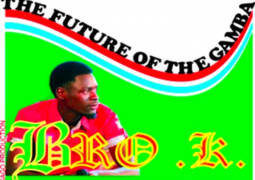A national training of trainer’s workshop in the field of the standardised Quranic script-based literacy in Mandinka and Pulaar on Monday kicked off at the Regional Education Office in Kanifing.
The training, which is jointly organised by the Gambia National Commission for UNESCO(NATCOM) through funding from the Islamic Education, Scientific and cultural Organisation (ISESCO), attracted thirty participants from the newly established Mandinka and the Pulaar communities.
In his welcome remarks, Yahya Al-Matarr Jobe, ag Secretary-General, NATCOM, said the ISESCO started a pilot project to introduce the use of the standardised Quranic script with a training session in 2001 in The Gambia.
According to him, some teachers and education specialists were trained on the use of standardised script.
While stating that in 2005, five literacy cantres were opened in Wollof-speaking communities, Mr. Jobe said, some thirty Gambian Arabic/Islamic teachers were trained in the use of the A3 typewriters.
He said the pilot project aimed at fighting illiteracy and marginalisation within the Muslim Ummah, enhancing Islamic culture, as well as contributing towards achieving the education for all (EFA) goals.
The first phase of the project has helped five Wollof-speaking communities to easily communicate in writing to each other using the standardised scripts.
In order to promote good practices and improve communication between and across our national language, it is now crucial to include Mandinka and Pulaar speakers as these constitute the two most widely spoken languages in The Gambia, he said.
ISESCO’s educational specialist, Mr. Husainou A. M Touray, said Quranic script had played a very significant role in promoting literacy in sub-Saharan Africa for more than six centuries ago.
Noting that the main purpose of the session was to spread Islamic religious education and faith, he said, scholars had started using the Quranic scripts in documenting events, such as marriages, child births, naming ceremonies, business activities, correspondence and poems.
In his official opening statement, Dr. Omar Jah, Chairman of ISESCO advisory board, gave a brief outline of the transcription of the national languages of Islamic peoples using the standardised Quranic script, among other things.
“This is one of the approaches that our education system can employ to capture scholars from the non-conventional education cohort,” he said.
In a statement read, on his behalf, the Director-General of ISESCO, Dr Abdulaziz Othman Altwaijri, thanked the national experts and coordinators of the Mandinka and Pulaar centres, as he underscored his confidence in their experience and expertise.
He expressed delight at the initiative and then hailed NATCOM for their collaboration.


